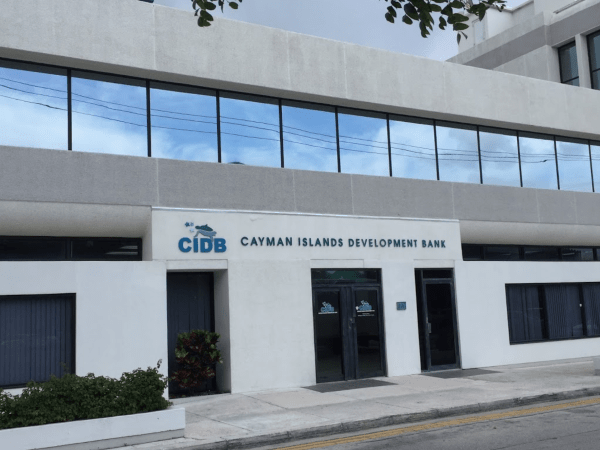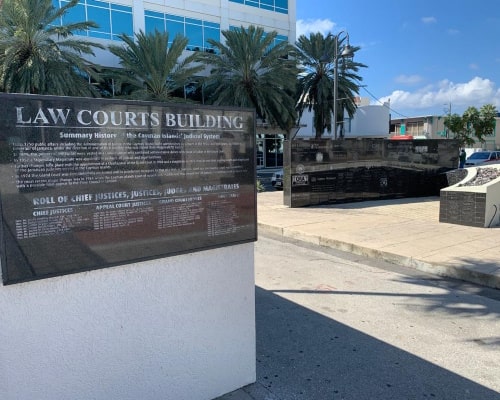Bank needs collateral for cheap loans

(CNS): The Cayman Islands Development Bank is offering 1% interest loans with “excellent terms and conditions” to small businesses as part of the government’s economic recovery package. However, borrowers will still need to provide an acceptable form of “security to be held as collateral for the loan”, the bank’s CEO and director, Tracy Ebanks, told CNS. To get the cheap cash, most borrowers will end up putting a lien on their homes as their only way to get the loan.
Ebanks said the bank has to remain viable and protect its ability to recover any cash it lends.
The loans are being offered to small businesses hit by the COVID-19 health crisis at 1% interest fixed for the first year and up to 4% fixed for the remaining term of the loan, with interest capitalized for the first 6 months. And while the loans are part of a government stimulus package, the government is not guaranteeing the loans, leading to the need for collateral from borrowers.
Ebanks explained that the government guarantee is issued to the bank as a backstop against its potential loss. The CI$5 million set aside for the loan programme is being funded by the bank’s available cash, she noted.
“Despite our due diligence, the collateral requirements are relaxed therefore these loans are perceived as high risk,” she said. “The economic recovery is still uncertain. The Government Guarantee helps mitigate this risk and results in a lower provision for loss on the bank’s balance sheet. Obviously, the aim is to underwrite good quality loans so that the bank does not need to call on the Government Guarantee.”
But she warned that it is too early to predict the speed of economic recovery.
Ebanks said that while development banks operate differently to commercial banks, they still need collateral. However, the CIDB boss said there had been misconceptions about the type and amount of assets that can be put up to protect a loan in regards to this particular special loan programme.
Claims that borrowers need to provide 125% worth of assets for these low cost loans of up to $50,000 is incorrect, she said, because that applies only where the borrower has no assets of their own and are using a personal guarantor in the absence of any other security.
In that case, she explained, if the loan request is $10,000, then the guarantor should show that they have a tangible net worth of $12,500. “Most banks don’t use guarantors as a sole source of repayment as it can be difficult to recover through the courts,” she said.
In general, this low cost loan programme is offering up to 80% of the security that is put up as collateral. Ebanks said that business loans are high risk, so this is generous when compared with most commercial banks, which would only offer 65% of the value of any assets.
“The maximum loan under this program is $50K, so if a customer has property valued at $62,500 then they would be entitled to 100% financing,” Ebanks said.
“We are also taking other forms of security, such as assignment over receivables, second charges over homes and even cash values in life policies. These are not standard acceptable stand alone forms of security but we are working with customers to mitigate risks,” she added.
In partnership with the government, the bank has also launched an initiative where customers can get free help with preparing financial statements and business plans from finance professionals for submission to the bank for consideration for the loan.
Ebanks said the loan package is designed to help businesses that were viable before the COVID-19 pandemic shut down the economy and are able to demonstrate a local market or an ability to recover quickly when the borders open.
“Unfortunately, the businesses that were struggling before COVID may not get the assistance they need as they were reporting losses with no evidence to support that they can recover,” she said. “These individuals would not benefit from a loan to finance losses with more debt.”
Ebanks believes that the criticisms that have been aimed at the bank stem from a lack of understanding, she said, pointing out that the CIDB is audited by the Office of the Auditor General and CIMA. It is bound to comply with regulations and adhere to the policies and the law so that the institution can remain stable especially in times of crisis, she noted.
- Fascinated
- Happy
- Sad
- Angry
- Bored
- Afraid
Category: Banking & money, Business




































I am a Caymanian with a small business with 2 employees…
CNS: The rest of this comment has been posted here: Small businesses are not getting help
Government seems to be missing an opportunity here to guarantee ‘going concern recovery plan’ loans. If your accounts book shows good cash flow up until say 1 March this year then CIG guarantee a cheap (1%) CIDB loan based on your approved business recovery plan, e.g., my 4 table burger joint that was doing good business but cannot reopen with social distancing is changing to delivery and my 1 server is now the delivery driver while I flip the burgers. Still a risk, but one worth taking for socioeconomic reasons. Obviously if your business was hurting before 1 March and COVID was just the final nail then its not a risk worth taking by you or the Government.
The other thing this article throws up is how little businesses may actually own when they lease their location. Great in good times (low up-front cost) bad in hard times (high recurrent expense). Even seemingly large corporations may find themselves surprisingly vulnerable.
Quite frankly, there is too much round and round explanation.
If the Government guarantee’s the loan, then collateral should be decided on the risk profile of the business. Now if Government do not want to be exposed from the guarantee, we can understand that.
None of the technicalities was explained from the onset of the programme. It should have been made clear.
Not all business are high risk. I do not think that statement should be generalized. I think this should be assessed on the risk profile and the amount requested to determine if collateral is needed. It seems the bank is operating from past experience which should not be the case. We can’t operate from mistakes done in the past. The question is how has the bank really helped the business community prior to this programme?
We need to be more pragmatic when adjudication is being done. That programme will not be successful based on the additional hurdles thrown in the way. Too much explaining.
1%? Any business owner with any sense should be lapping that up no? If only to pay off any existing loans.
I smell foreclosures. Saving up my pension monies in anticipation.
Pure PPM Bulls, Joey Who to screw now
So basically, you cannot get this money unless you do not need this money. Thanks Joey.
There is a difference between asset and cash,
.it is entirely appropriate to have any loan secured , otherwise why bother to pay it back….it’s a LOAN not a gift.
Good. Most of that money will not go to business nor will it be paid back.